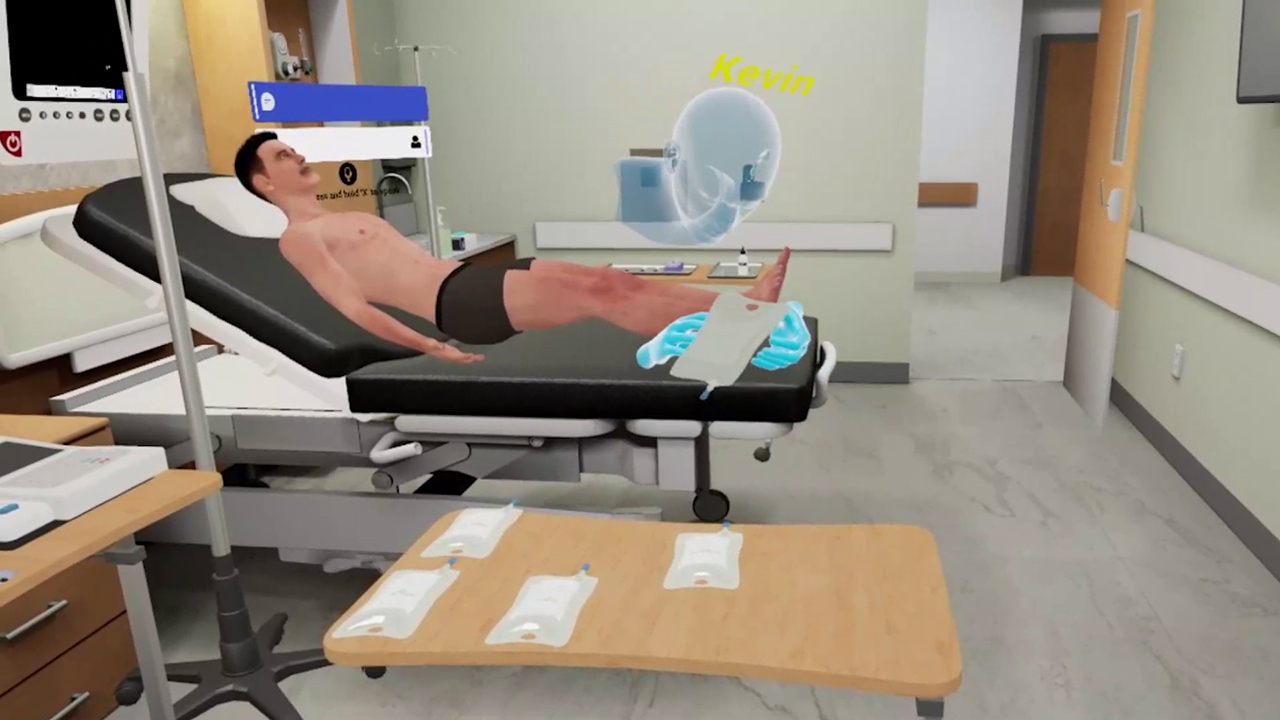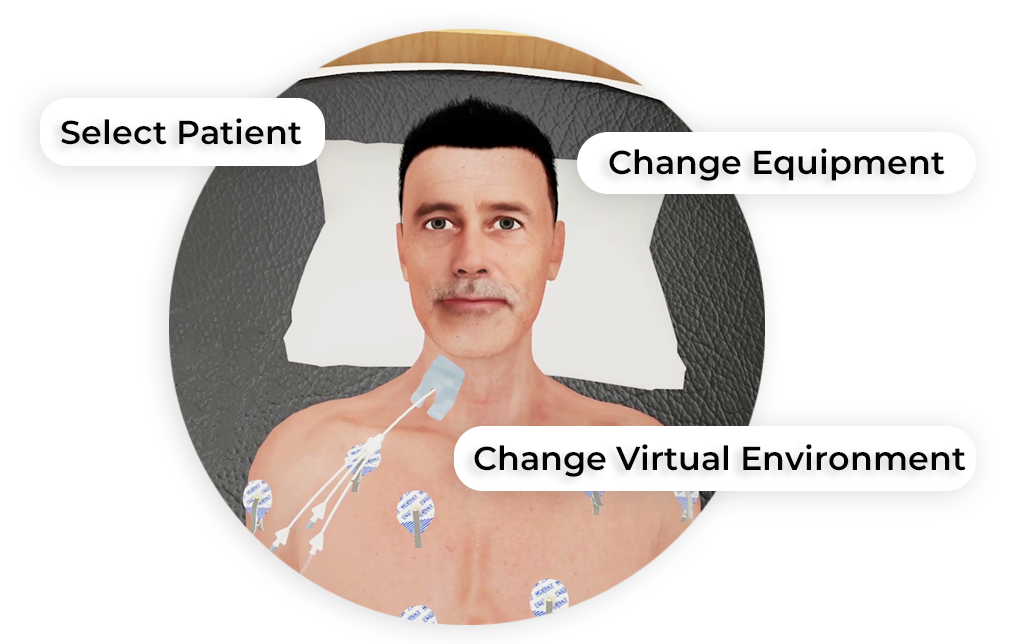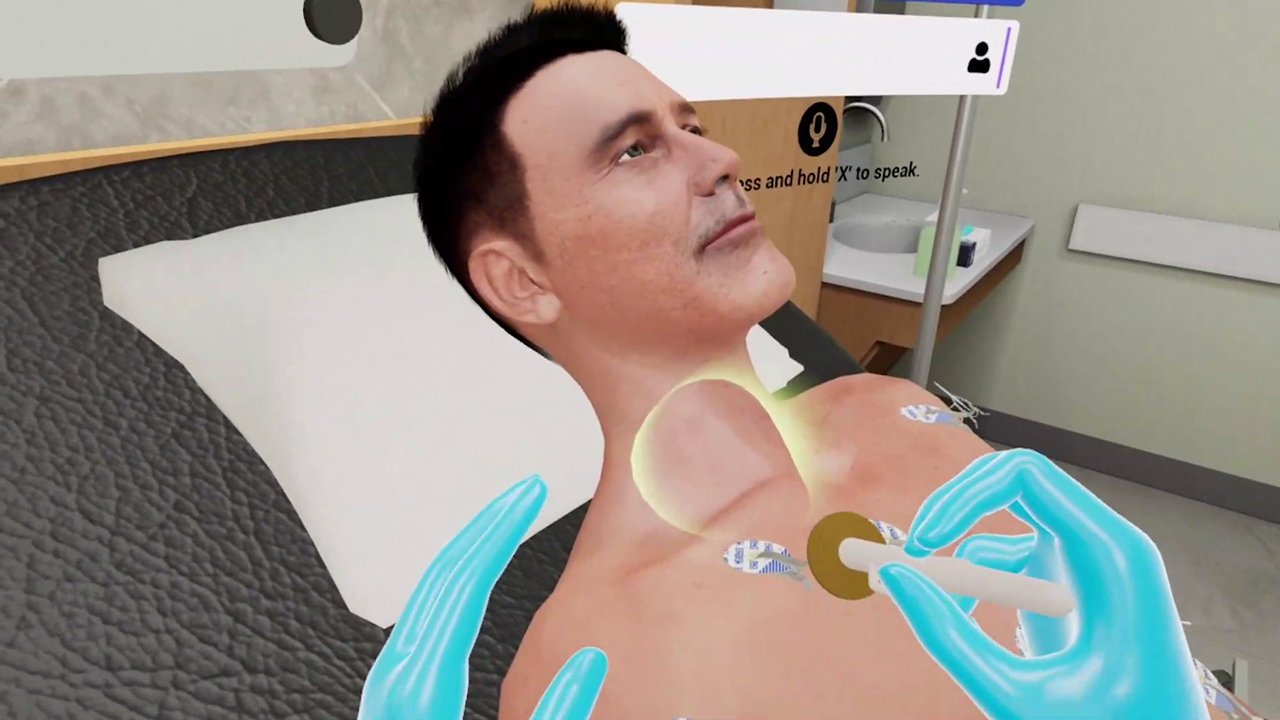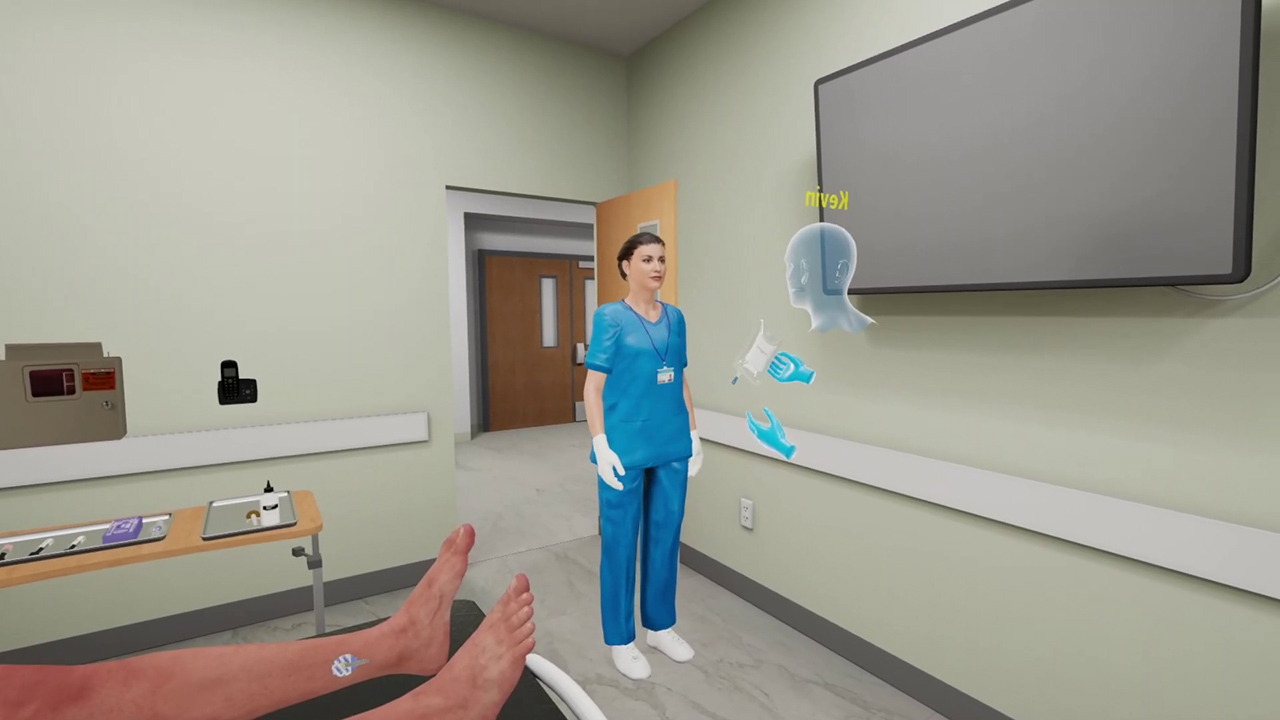Beta Blocker Toxicity
Shawn, a 50-year-old male, is presented to the emergency department following the ingestion of an entire bottle of metoprolol. He had filled his prescription at the pharmacy and impulsively took the entire bottle. The estimated ingestion is of 100 x 50 mg tablets (5000 mg) approximately 45 minutes prior to presentation.
This multiplayer VR session is designed to enable learners to identify and treat a severe beta blocker overdose requiring maximal medical therapy, including infrequently utilized therapies.
- Identify beta blocker toxicity
- Provide decontamination and initial supportive care
- Mobilize resources to complete simultaneous investigation and treatment of an unstable patient
- Initiate appropriate management of severe beta blocker toxicity
- Anticipate and plan for a potentially critically unwell patient

- Beta-blocker Poisoning – https://www.uptodate.com/contents/ beta-blocker-poisoning#H27
Customize Your Program
Get rid of the editor. Adopt in-VR customization.
MedVR Education is bringing to you in-VR customization that will enable you to put together your own simulations by making selections from a wide range of feature choices.
- Select patient from a diverse background
- Choose preferred virtual environment
- Configure patient vitals
- Define simulation duration
- Create patient history and train with AI-Humans
- Customize session-end debriefing
- …..many more to come

 AI Patient Assessment
AI Patient Assessment Natural Language Processing
Natural Language Processing Multi-player
Multi-player
Sessions Physics-based Interaction
Physics-based Interaction
Core Skills Training

Beta Blocker Toxicity
As part of this open scenario, learners are required to employ decontamination strategies alongside poison control consultation. As the condition of the patient deteriorates, learners will have to use clinical judgment skills calling for IV access, atropine, glucagon, multi-dose vasopressors, and high dose insulin. Further, a call will have to be placed to the toxicologist, asking for guidance in the case.
All necessary affordances are made available to learners to assist them in performing their tasks with efficiency and effectiveness.
Debriefing
End-of-task debriefing to assess one’s performance, evaluate actions, and get the most out of the training. Examples of topics being touched upon in the debriefing include the following:
- Thorough patient assessment
- Completion of necessary steps
- Correct medication administration to patient
- Sequential completion of task
- Execution of time-sensitive tasks







